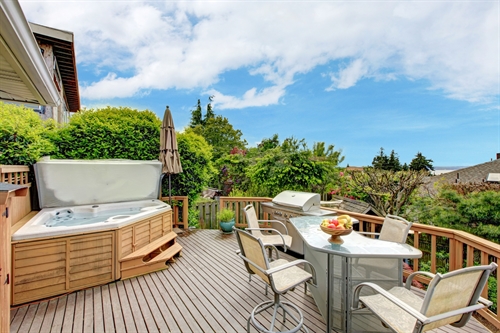Most house sales include fixtures and perhaps some fittings, but what about garden plants? Generally, plants in pots and house plants won’t be included in the sale, but plants in the ground will be included.
However, under some circumstances, you may want to take plants in the ground with you.
Get agreement from your buyer about what’s included in the sale
It’s important to be aware that if your buyer has purchased a house with a beautiful fully planted garden, they are likely to expect to take possession of a beautiful fully planted garden. If it’s full of holes where you’ve dug up plants and taken them to your new home, they may (quite reasonably) feel aggrieved.
Plants and removable garden goods, like sheds, sculptures and planters, are considered chattels because they can be removed. They should be included on the fixtures and fittings list so that everyone is clear what is staying and what is going with you. So use your estate agent to get agreement from the buyer about what’s included in the house sale.
Pot up plants that you want to take with you
When you put your house on the market, it may be worth potting up any plants that you know you’ll be taking with you, rather than marketing your house with them in the ground. That way, your estate agent’s marketing materials will reflect the garden you are selling.
Take cuttings if you can’t take whole plants
Establishing cuttings of your favourite plants in the run-up to the move will give you portable versions that you can take with you to your new home. Even if you’re planning to move a plant, taking cuttings is a good idea in any case because it will give you a back-up in case your mature plant fails to thrive in its new home. A smaller plant is, perhaps, less likely to get stressed by the move. The RHS has some advice on successfully taking cuttings and propagating plants.
You could also collect seeds from perennials to sow in your new garden.
Should I take ripe fruit and veg that I’ve grown when I move house?
It would be reasonable to harvest ripe fruit and produce from your vegetable garden before you leave your old house. Unripe produce is best left for the buyer to enjoy.
Can I take compost that I have made when I move house?
Homemade compost is absolute magic for your garden – but not everyone sees it that way. Some buyers would view a compost heap as garden waste which the sellers should have removed. Unless you have a specific agreement with your buyer, it might be safest to take compost with you to improve your new garden, or if that is not practical, you can take it to the green waste recycling centre.
How can I keep my plants safe during the move?
We have some information about moving house plants which can be applied to garden plants in pots.
Can I keep plants in my storage unit?
If you have a gap between leaving your old home and moving into your new home, you may be able to negotiate with your buyer to keep your plants in place until you can move them; or with your vendor to bring them a few days early to the new garden.
Self-storage can help in some respects with a gap between the day you move out and the day you move in – but most storage companies will not let you keep plants in your storage unit.
A removal company that specialises in gardens is well placed to help you get your plants and garden fittings ready for the move, and could be helpful in finding somewhere to store your plants until your new garden is ready.
You can, however, use storage for garden furniture, small sheds, empty containers and garden ornaments. All your stored goods will need to be insured – your storage unit is not covered by your domestic insurance policy. So get a quote from Store and Insure to find out how much it would cost to insure your stored domestic goods.


